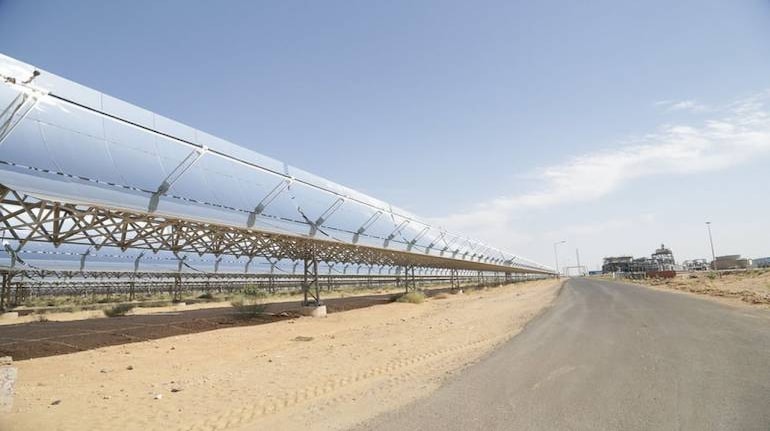We stand by our commitment to add 500 GW of non-fossil fuel by 2030: Power Minister RK Singh
India’s non-fossil fuel-based capacity stands at 167 GW, which accounts for 41 percent of its total installed capacity.
August 08, 2022 / 18:39 IST
The government has not abandoned the target of increasing its non-fossil energy capacity to 500 gigawatts (GW) by 2030 while revising its commitment to the United Nations Framework Convention on Climate Change (UNFCCC), and the Energy Conservation (Amendment) Bill 2022 aims to help achieve these goals, Power Minister RK Singh said in the parliament. The Energy Conservation (Amendment) Bill 2022 was passed by the Lok Sabha on August 8. The bill aims to boost clean energy and help in achieving India’s commitments towards climate change.On August 3, the Union Cabinet chaired by Prime Minister Narendra Modi approved India’s updated Nationally Determined Contribution (NDC) to be communicated to UNFCCC. According to the updated NDC, India now aims to reduce the emission intensity of its GDP by 45 percent by 2030 from 2005 levels, and source 50 percent of electricity from non-fossil sources. The NDC did not mention the commitment of adding 500 GW in absolute terms, which made the opposition question if the target was dropped. “The Prime Minister had made a pledge that by 2030, 500GW of non-fossil fuel-based capacity will be added. We stand by the commitment,” Singh said.India’s non-fossil fuel-based capacity stands at 167 GW, which accounts for 41 percent of its total installed capacity.He said that the NDC requires stating the target in percentage terms and hence India has stated only its target of sourcing 50 percent of electricity from non-fossil sources.
Earlier, India submitted NDC to UNFCCC in October 2015 which included three quantitative targets up to 2030– namely, cumulative electric power installed capacity from non-fossil sources to reach 40 percent; reduce the emissions intensity of GDP by 33 to 35 percent compared to 2005 levels and creation of additional carbon sink of 2.5 to 3 billion tonnes of CO2 equivalent through additional forest and tree cover.Later, at the UN Climate Change Conference in Glasgow (COP26) in 2021, PM Modi raised these targets and the cabinet approved them on August 3; this is the updated NDC.
Rachita Prasad heads Moneycontrol’s coverage of conventional and new energy, and infrastructure sectors. Rachita is passionate about energy transition and the global efforts against climate change, with special focus on India. Before joining Moneycontrol, she was an Assistant Editor at The Economic Times, where she wrote for the paper for over a decade and was a host on their podcast. Contact: rachita.prasad@nw18.com
Discover the latest Business News, Sensex, and Nifty updates. Obtain Personal Finance insights, tax queries, and expert opinions on Moneycontrol or download the Moneycontrol App to stay updated!



